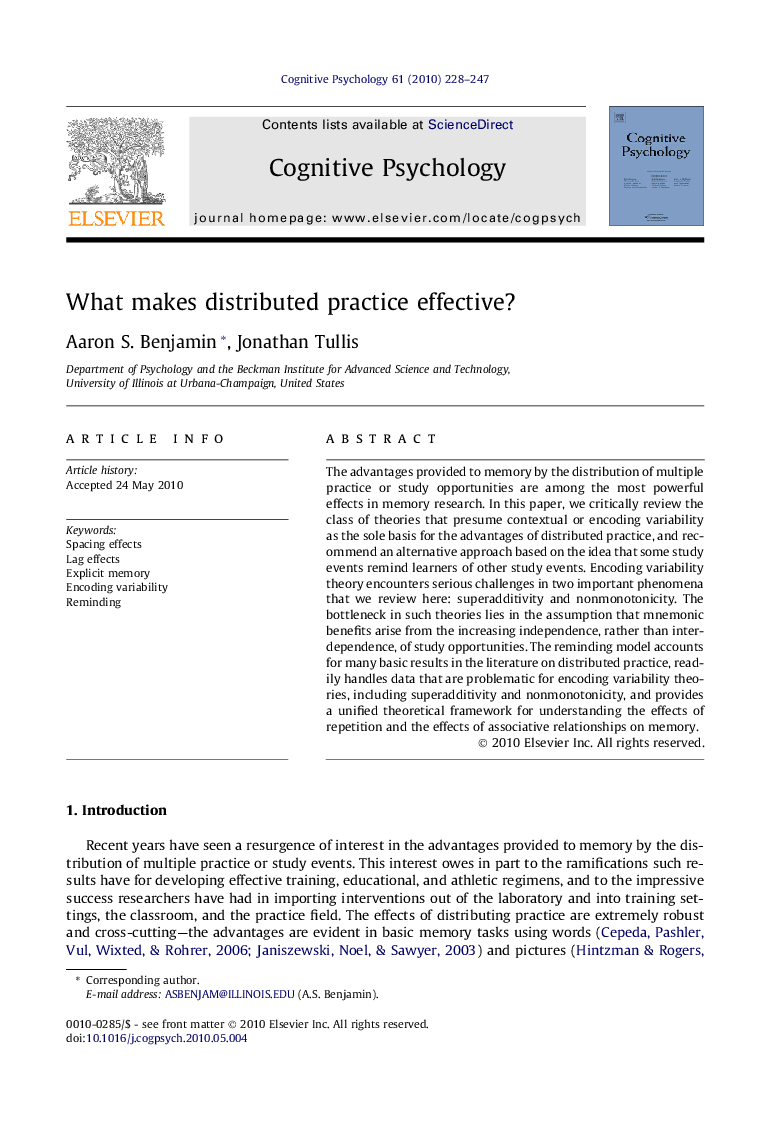| کد مقاله | کد نشریه | سال انتشار | مقاله انگلیسی | نسخه تمام متن |
|---|---|---|---|---|
| 916971 | 919016 | 2010 | 20 صفحه PDF | دانلود رایگان |

The advantages provided to memory by the distribution of multiple practice or study opportunities are among the most powerful effects in memory research. In this paper, we critically review the class of theories that presume contextual or encoding variability as the sole basis for the advantages of distributed practice, and recommend an alternative approach based on the idea that some study events remind learners of other study events. Encoding variability theory encounters serious challenges in two important phenomena that we review here: superadditivity and nonmonotonicity. The bottleneck in such theories lies in the assumption that mnemonic benefits arise from the increasing independence, rather than interdependence, of study opportunities. The reminding model accounts for many basic results in the literature on distributed practice, readily handles data that are problematic for encoding variability theories, including superadditivity and nonmonotonicity, and provides a unified theoretical framework for understanding the effects of repetition and the effects of associative relationships on memory.
Journal: Cognitive Psychology - Volume 61, Issue 3, November 2010, Pages 228–247